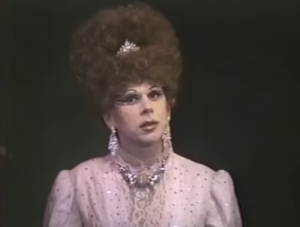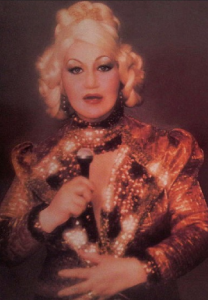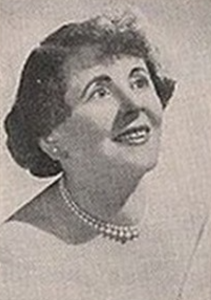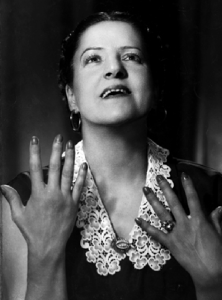Podcast: Play in new window | Download (Duration: 1:57:10 — 118.0MB) | Embed
Subscribe: Spotify | TuneIn | RSS | More
Welcome to Season Five of Countermelody! While I indulge in a much-needed break for the month of January (my first in four years!), I have asked a number of Countermelody fans and listeners to provide spoken introductions to some of their favorite episodes from the first three seasons of the podcast. Today conductor Brian Castles-Onion introduces an episode from June 2020, as we neared the height of the pandemic and the panic surrounding it. It is an interview with Ira Siff, artistic director of La Gran Scena Opera Company di New York, alter ego of the beloved “traumatic soprano” Vera Galupe-Borszkh, lecturer for the Metropolitan Opera Guild and Weekly Commentator on the Metropolitan Opera broadcasts. So much has changed for everyone since the interview was recorded in January 2020, most poignantly (as relates to this episode) the death of our beloved Chic Walker (who portrayed Dame Emily Post-Morddum and Alfredo Sorta-Pudgi in La Gran Scena) on 11 April 2022; and the passing of Renata Scotto on 16 August 2023.
My association with Ira Siff and La Gran Scena Opera Company di New York goes back more than thirty years, when Ira provided me with my first employment as a professional singer when my alter ego Daniela della Scarpone sang for two years with the renowned travesty opera company. I sat down with Ira in his East Village apartment in January 2020 for a wide-ranging interview in which we discuss his early days as a standee at the old Met (where some of his opera-going experiences included Maria Callas’s final Tosca performances, Renata Scotto’s 1965 debut as Madama Butterfly, and Leonie Rysanek’s wild traversals of Verdi and Wagner). He discusses his first performing experiences in the early 1970s in association with Al Carmines and others, the genesis of La Gran Scena and their development into a worldwide phenomenon, and his subsequent “legitimate” career as lecturer, stage director, vocal coach and voice teacher and commentator all stemmed from in his words, “getting in a dress and singing soprano,” which he dubs “the strangest part.” This is a free-wheeling and extremely Opera Queeny interview, peppered with Ira’s unique anecdotes and snippets from Gran Scena (and other!) performances.
Today’s guest host Brian Castles-Onion is one of Australia’s most exciting and well-known opera conductors. Completing his tertiary studies at the Newcastle Conservatorium of Music, his outstanding achievements speak for themselves. He has worked at New York’s Metropolitan Opera, the Julliard School of Music and the Rossini Festival in Italy, and has held the position of Artistic Director of Canterbury Opera in New Zealand. He currently continues his long run association with Opera Australia. His conducting experience includes well over five hundred opera performances throughout Australia, Asia and New Zealand alone. He was on the podium for Opera Australia’s 40th Anniversary Gala and 60th Anniversary Gala, The Robert Allman Farewell Gala and conducted the Dame Joan Sutherland State Memorial Service – which was broadcast internationally on television and radio. His book Losing the Plot in Opera has been a Best Seller in Australia and the UK. Brian became a Member of the Order of Australia (AM) in the 2017 Australia Day Honours List.
Today’s interviewee and subject, Ira Siff, is a native New Yorker, who grew up on the standing room line of the old Metropolitan Opera, worshiping the famous singers of the 60’s. A graduate of the Cooper Union, with a degree in Fine Arts, Mr. Siff began to study voice, and made his debut as a tenor in 1970. For the next decade, he performed roles in opera, operetta and musicals in New York, at The New York Shakespeare Festival, Circle in the Square, Playwrights Horizons, and many other venues. Turning to cabaret, Ira created an act using vocal parody of opera, jazz, and other styles of music, gaining critical acclaim, and a loyal following. In 1981, he founded La Gran Scena Opera Company di New York, the internationally acclaimed travesty troupe, whose gifted falsetto “divas” have spoofed opera with great affection for over two decades, in New York annually, and on tours to some of the great festivals, theatres and opera houses of the world.
In 2000, he turned to stage directing, gaining critical acclaim for his productions of operas at venues such as Carnegie Hall, Sarasota Opera, The Caramoor Festival, and the Tanglewood Music Festival. All in all, he has directed operas for companies in New Jersey to New Zealand, with stops along the way in Puerto Rico, Lima, Peru and Utah. Singers whom he has directed include Sumi Jo, Dolora Zajick, Aprile Millo, Eglise Gutierrez, Krassimira Stoyanova, and the late Marcello Giordani. Conductors with whom he has collaborated as a stage director have included Richard Bonynge, Christoph von Dohnányi, and James Levine.
For the past thirty years, Mr. Siff has been a voice teacher and interpretive coach, teaching in New York, Italy, Israel, Holland and China, giving Master Classes for the Metropolitan Opera Guild, and was on the faculty of the Renata Scotto Vocal Academy. Ira was a guest teacher of bel canto technique at The Royal Conservatory in Den Haag in 2008, and then at the Dutch National Opera Academy for five seasons, and at the Amsterdam Conservatory in The Netherlands where he returned annually, and was appointed Permanent Guest Teacher. He has also given master classes in bel canto and verismo for the Metropolitan Opera Guild every season since 2008 and has presented sold-out lectures for the Met Guild as well on a variety of operatic topics. These lectures can be heard on the podcast of the Metropolitan Opera Guild. Ira also lectures on opera twenty times a season for two private classes, has been a contributor of reviews and features to Opera News since 1997 and has been Weekly Commentator on the Met Broadcasts since 2007.
Countermelody is a podcast devoted to the glory and the power of the human voice raised in song. Singer and vocal aficionado Daniel Gundlach explores great singers of the past and present focusing in particular on those who are less well-remembered today than they should be. Daniel’s lifetime in music as a professional countertenor, pianist, vocal coach, voice teacher, and journalist yields an exciting array of anecdotes, impressions, and “inside stories.” At Countermelody’s core is the celebration of great singers of all stripes, their instruments, and the connection they make to the words they sing. By clicking on the following link (https://linktr.ee/CountermelodyPodcast) you can find the dedicated Countermelody website which contains additional content including artist photos and episode setlists. The link will also take you to Countermelody’s Patreon page, where you can pledge your monthly support at whatever level you can afford.



